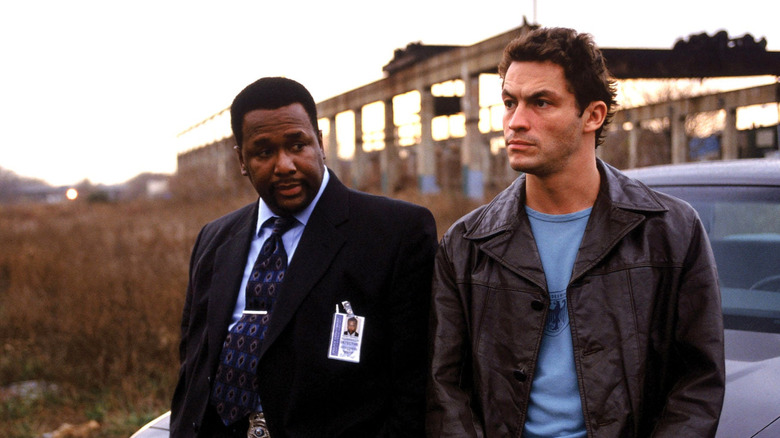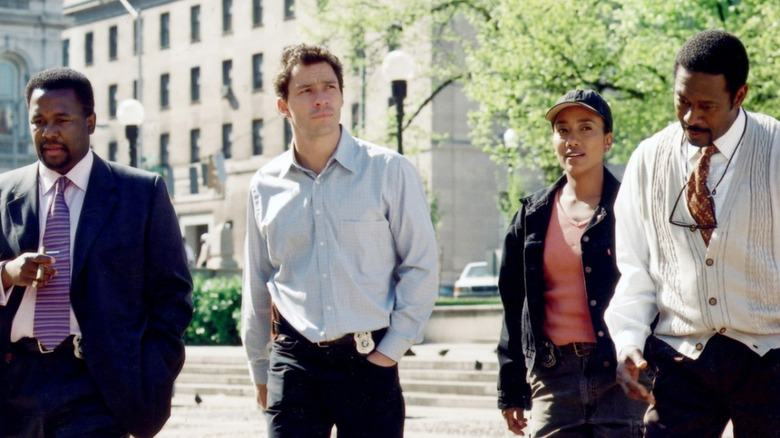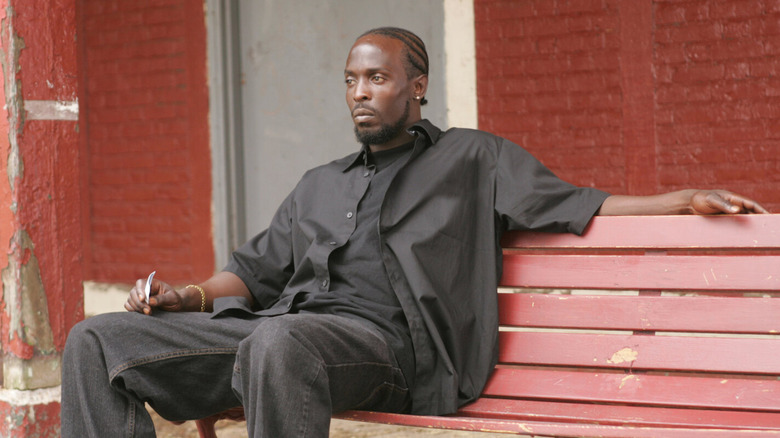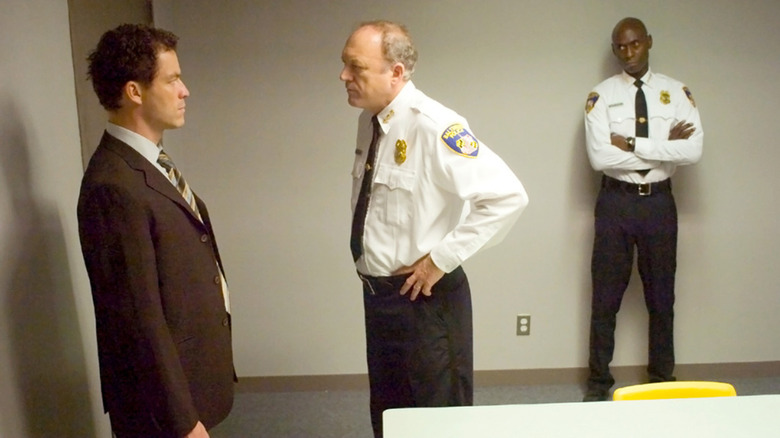Why The Wire Couldn't Work Before The HBO Era
In many ways, the 2002 premiere of "The Wire" on HBO helped signal a shift in how the medium of television was perceived. Sure, crime dramas had long existed and had been taken seriously when David Simon's Baltimore-set drama was released. However, "The Wire," not unlike its HBO contemporaries "The Sopranos" and "Carnivàle," took an accessible idea and injected it with much more philosophical and mythical themes.
In the case of "The Wire," the Greek tragedy was a major inspiration and guiding force of the show. While not an adaptation of famous tragedies such as "The Iliad" or "Antigone," the central structures of these theatre works was carried over to modern-day Baltimore. Sold as a simple but compelling police procedural, it became apparent that it was far more complex, humanizing, and ultimately tragic than its straightforward plot might suggest.
It was this complexity that made the show such a unique experience at the time of its release, and it helped open the doors for television to be taken more seriously as an artform. According to Simon, though, the show premiered at just the right time.
All in the game
In a 2013 interview with Ebony, Simon described the show's combination of procedural drama with historic theatrical conventions as something that hadn't really been done before. When asked about why he decided to focus on Greek theatre as a primary inspiration, he responded:
"That was just us stealing from a much more ancient tradition that's been so ignored, it felt utterly fresh and utterly improbable. Nobody had encountered it as a consistent theme in American drama because it's not the kind of drama that brings the most eyeballs."
While it might sound a bit pompous to those unfamiliar with "The Wire," Chase actually brings up a good point. For decades, television was often denigrated as a cheaper version of other performance-based art forms. TV shows were often compared unfavorably to movies, but these comparisons were even worse regarding theater, which was considered the highest and classiest form of entertainment.
It would be ignorant of me not to acknowledge that, yes, the original Golden Age of Television that occurred during the 1950s had already passed by, and that period introduced dramatic plays made accessible across the entire country (via The Criterion Collection). However, combination of the modern American sociopolitical landscape and Greek theatre in "The Wire" was something that had yet to be fully realized at the time. In fact, very few TV shows with similar plots or ideas have arguably lived up to this show's legacy.
Lay off the Greeks, they invented civilization
Sure, it's one thing to say that "The Wire" is a modern-day Greek tragedy, but it's another thing entirely to prove it. According to Grand Valley State University, the famous Greek philosopher Aristotle defined theatrical tragedy as "a process of imitating an action which has serious [moral, social, or psychological] implications, is complete, and possesses magnitude." The act or motivation that guides the characters of the play must be alluring, and all proceeding events must be guided "through a course of pity and fear completing the purification [or catharsis] of such emotions."
With this idea of the Greek tragedy in mind, there's no denying that this framework can be applied to the show's main cast of characters. Detective McNulty (Dominic West) might be a successful detective, but his personal demons and abrasive attitude prevent him from truly being happy. Avon Barksdale (Wood Harris) is consumed by his quest for power over the Baltimore drug trade, going to extreme and dire lengths to achieve such goals. Finally, perhaps the most fitting example is that of Omar Little (Michael K. Williams), whose strict sense of morality dangerously clashed with his dealings as a stick-up man.
Game's the same, just got more fierce
The lives and arcs of these characters, along with the many other tragic figures of "The Wire," were strictly shaped by the framework that the Greek tragedy provided. While some storylines were adjusted or changed as the show continued, Simon told Variety that the general trajectory and the facts of the characters were always loosely determined.
"We knew what was going to happen over the course of the five-year run," said Simon in an interview published shortly before the series finale aired in March 2008. "We were always adjusting where characters were going to end up, what parts of Baltimore we were going to depict when, what we wanted to say with the overall theme of the show.
And what exactly did the show say? That pride, ego, capitalism, and corruption spares no one, whether or not you benefit from the institutions created from these aspects of society. It's easy to see why a message like this, combined with the complex and tragic narrative, wouldn't be that appealing to audiences before "The Wire." However, the art form of television, along with arguably all scripted entertainment as a whole, is better off because of it.



